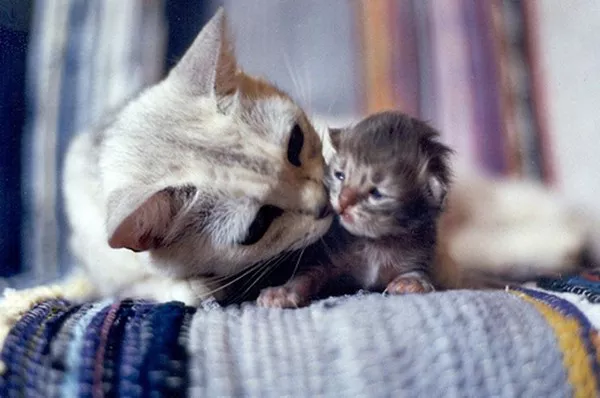Welcoming a new kitten into your home is an exciting and joyful experience. However, it can also be a time of worry and concern, especially when you notice unusual behaviors such as shaking. If you have a two-week-old kitten that is shaking, it’s essential to understand the possible causes and determine whether it is a normal part of their development or a cause for concern. In this article, we will explore the various reasons behind shaking in a two-week-old kitten, helping you navigate this delicate stage with knowledge and peace of mind.
Normal Developmental Tremors:
In the first few weeks of life, it is not uncommon for kittens to experience tremors or shaking. These tremors, known as developmental tremors or benign neonatal tremors, typically occur when the kitten is resting or sleeping. These tremors are generally harmless and tend to resolve on their own as the kitten’s nervous system matures. It is important to differentiate between normal developmental tremors and other potential causes of shaking.
Hypoglycemia:
Low blood sugar, also known as hypoglycemia, can cause shaking or tremors in kittens. In very young kittens, maintaining stable blood sugar levels can be challenging, and they may experience episodes of hypoglycemia. Hypoglycemia can occur if a kitten is not nursing adequately or if the mother cat‘s milk production is insufficient. If you suspect hypoglycemia, it is crucial to consult a veterinarian for proper evaluation and guidance.
Infections or Illnesses:
Shaking in a two-week-old kitten can also be a symptom of an underlying infection or illness. Kittens are susceptible to various infections, including viral, bacterial, and parasitic. These infections can disrupt their overall health and lead to shaking or tremors. Common culprits include panleukopenia, upper respiratory infections, and parasites like fleas or ticks. It is vital to seek veterinary care to diagnose and treat any potential infections or illnesses promptly.
Environmental Factors:
Environmental factors can also contribute to shaking in young kittens. Cold temperatures, drafts, or inadequate heating can cause kittens to shake as they try to regulate their body temperature. Ensure that the kitten’s environment is warm and comfortable, providing them with a cozy and safe space.
Neurological Disorders:
In some cases, shaking or tremors in a two-week-old kitten can be a sign of an underlying neurological disorder. Conditions such as cerebellar hypoplasia or other congenital abnormalities affecting the nervous system can manifest as involuntary movements or shaking. If you suspect a neurological issue, consult a veterinarian who can perform a thorough examination and provide an accurate diagnosis.
When to Seek Veterinary Attention:
While some instances of shaking in two-week-old kittens may be normal, it is essential to monitor the situation closely. If the shaking persists or is accompanied by other concerning symptoms such as lethargy, poor appetite, diarrhea, or difficulty breathing, it is crucial to seek veterinary attention promptly. A veterinarian can perform a comprehensive examination, conduct diagnostic tests if necessary, and provide appropriate treatment or intervention.
Conclusion:
Shaking in a two-week-old kitten can have various causes, ranging from normal developmental tremors to more concerning underlying issues. While some instances may resolve on their own as the kitten grows, it is vital to stay vigilant and seek professional veterinary advice when needed. Remember, early detection and intervention can make a significant difference in ensuring the health and well-being of your adorable new family member. By understanding the potential causes of shaking and taking appropriate action, you can provide the best possible care for your two-week-old kitten and enjoy the journey of nurturing them into a happy and healthy adult cat.

























